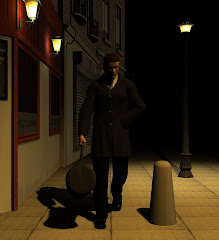
There is one painting which I can’t keep away from. I return to it time after time, peering at the fantastic tapestry of detail, trying to find yet another fascinating vignette. Then I step back from it to drink in the whole wonderful composition. The Procession To Calvary by Pieter Bruegel; and one day I must make a procession of my own to Vienna, where it hangs, to see the vast canvas in the flesh.
The Crucifixion was a standard subject for the sixteenth century, of course, and Bruegel includes some conventional aspects. The weeping Madonna supported by her friends; Christ marching onwards with his cross on his shoulder. But though Mary is in the foreground the eye is sucked past her to the sprawling procession itself. This is not the orderly march the title implies. It is the sprawling, uncoordinated tramp of a crowd, some on foot, some mounted, some hitching rides on carts. They are a diverse group and they look in a relaxed, semi-festive mood. Bruegel has shown us the Crucifixion not as the salvation of mankind but as a Saturday afternoon outing for ordinary Israelites. And of course, there is a small bit of trouble. If the whole painting has a focal point it is the apparent arrest of a man on the left hand side. With great realism, the scuffle is shown to have a ripple effect on the crowd; the ones connected with the man wailing and tugging at him, those on the edges merely turning their heads to gawp. Christ himself is in the very centre of the painting. But you have to peer to actually notice him, because none of the people seem to. They aren’t jeering him or flogging him. They aren’t interested in him at all. He just isn’t interesting enough.
Why does this painting work so well? Because we’ve all witnessed this scene ourselves. The supposed homogenous crowd which is really a series of fragmented units, the semi-checked anarchy, the colours and the clutter. We see when we head to every Bank Holiday fete or car boot sale. Bruegel inserted a windmill on a hill to make his Procession more immediate to his Dutch contemporaries, but the scene remains immediate to an age when the mills have all vanished. The people he painted are the same whether they are watching men being nailed to crosses or Christians being devoured by lions or yahoos humiliating themselves on Big Brother. They are us, basically. Society has only varied the forms; the impulses have remained the same.
Bruegel didn’t like people. He didn’t like them at all. His speciality was enormous compositions demonstrating in pitiless detail how wretched we all are. Witness also The Fight Between Carnival and Lent, a collection of grotesques mocking the supposed holy occasion, or The Blind Leading The Blind, a lurid allegory showing society dragging itself into the pit. But you don’t have to share his puritanical morality to empathise with his work. Paintings like The Procession To Calvary do not preach overtly. They simply aim to show us humanity for what it really is; a gaggle of self-absorbed pleasure seekers. And it’s hard to argue with him all that convincingly. If I had been in that crowd I would probably be watching the arrest too, not some bearded pacifist carrying a cross.
